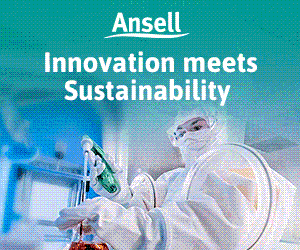The Institute of Virology and Immunology (IVI) is the reference laboratory for the diagnosis, surveillance and control of selected farm animal diseases and highly contagious epizootics, such as foot-and-mouth disease or avian flu. The Swiss rabies centre, which carries out surveillance for cases of rabies, is also established within the IVI. In addition, the Institute investigates the development of new animal diseases and their potential for human transmission, and tests new vaccines and serums for animals prior to approval. The IVI is housed in two locations, Mittelhäusern and the Vetsuisse faculty of the University of Bern, and is affiliated to BVL – the Federal Office of Consumer Protection and Food Safety.
The Institute regularly receives samples from suspected cases, on which it carries out tests to diagnose which particular diseases are present. A safe working environment is crucial and the legal requirements for the protection of humans, animals and the wider environment are very strict: viruses and other pathogens must, under no circumstances, leave the laboratory and enter the environment.
The safety arrangements are very close to those of a nuclear power plant
The Institute’s building envelope complies with biosafety security level four (BSL 4), the highest security level for biological facilities. Elaborate and reliable systems are used to ensure this level of safety. The constant risk potential does not allow for any deviations. Hence, the technical, structural and organisational safety arrangements must be fulfilled strictly and in accordance with national and international regulations. Peter Fluri, Head of Engineering and Safety Administrator of the national Institute points out that the safety arrangements are very close to those of a nuclear power plant. The facilities are accessed through a security door. By doing so, a constant negative pressure can be sustained in the laboratories, and at the same time leakage of contaminated air from the building can be prevented.
The air-tight sealing of the ventilation systems is another protection measure. For this purpose, RICO’s gas-tight butterfly valves have been in operation successfully for 23 years – now these are being replaced with the company’s more up-to-date products.
Structural and technical safety
One of the most important installations for a safe lab is a well-functioning ventilation system with adequate filtration stages that prevent leakage of viruses from the internal zones and therefore protect the environment, humans and animals. The room air in both the labs and the animal holding rooms is exchanged on average 10 times an hour; this means that a remarkable 55,000m3 of air flows through the pipes.
The Institute is divided into 94 separate ventilation zones, in which High Efficiency Particulate Air (HEPA) filters are in operation. Since the HEPA filters are capable of filtering even the smallest particles and aerosols onto which viruses and other pathogens can attach themselves, they ensure the safe filtration of both the air supply and air exhaust.
Gas-tight butterfly valves are installed upstream and downstream of the filter. These valves can be closed manually during the filter cleaning process to interrupt the airflow temporarily. The materials used to make the valves are crucial, because the filtration is carried out using formalin gas. Thus, the RICO valves were delivered with a hard-anodised aluminium design that will withstand such harsh, critical gases.
Another important criterion for the Institute was the possibility to verify the tightness of the butterfly valves once installed – this can be accomplished quickly and easily using a hand pump and manometer, which form part of the RICO valves’ PERFEKT-system.
These requirements are essential for optimal working conditions and for the staff and animal health. However, it is not only the daily operation that must be integrated into the IVI’s security concept. Prevention of leaks during critical or emergency situations requires complex systems to be installed that will also protect the population and environment in the event of an emergency.
Were contaminated air to leak into the immediate environment, not only could it lead to massive economic losses but it could also endanger the health of humans and animals. The ability to seal certain areas to make them gas-tight is therefore an important factor.
If a power failure occurs, the automated butterfly valves close automatically to prevent negative environmental influences
RICO’s gas-tight butterfly valves make a large contribution to achieving the required safety regulations: they are installed in the ventilation system of the entire IVI building, with a total of 311 manual and 15 automated valves. The latter are mounted on the building’s entrances and exits and prevent – as a final barrier – the flow of contaminated air from getting out.
On the other hand, the manual butterfly valves control the airflow rate of the ventilation ducts inside and in a closed position ensure absolute gas impermeability. This protection is ensured even when challenging problems arise. ‘If, for example, a power failure occurs, the automated butterfly valves close automatically to prevent negative environmental influences,’ Fluri explains.
Professional partner
To be sure that its facilities offer the highest safety and are state-of-the-art, the Institute decided to replace the valves before possible failures occur under preventative maintenance, even though the existing valves were still functioning. Thanks to its positive experiences with RICO, the IVI chose the specialist’s solutions once again.

Peter Fluri, Head of Engineering and Safety Administrator at IVI
‘One of the main reasons to continue the co-operation with RICO is the reliability of the products,’ said Fluri. RICO is aware of the high safety demands the valves have to meet and is well regarded by the Institute. A further crucial factor for the implementation of the project was the fact that RICO delivered similar products made of equivalent materials to the former ones. The valves could therefore be replaced without complications: no further structural measures were needed and there were no concerns over critical situations.
‘For a project of this size, the spatial proximity between the Institute and the supplier is essential for us,’ adds Fluri. If difficulties occur during the installation or operation, RICO’s service engineers are immediately on site to support the IVI engineering team. ‘Our engineers know the installed systems very well, so can provide the right expertise, particularly in terms of the butterfly valves’ handling,’ said Fluri.
The regular valve inspections and revisions are performed by the Institute’s employees, but in the case of questions arising, RICO’s service engineers are available at any time. Furthermore, IVI puts the necessary repairs completely in the hands of RICO – this way, 100% functionality can be ensured in the long term.
The co-operation between IVI and RICO proves to be a win-win-situation: ‘We appreciate RICO as a reliable partner, with whose help we can provide safety for our personnel and the environment in the future. Thus, we are able to fulfill our tasks at the Institute for the next 23 years in a very safe way,’ concluded Fluri.




